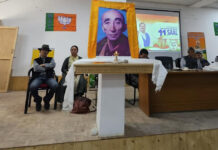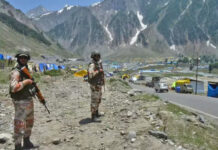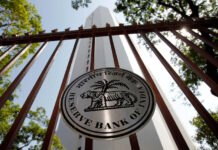As OTT platforms and digital media come under the purview of the I&B Ministry, regulation should be an enabler, not a disabler
Choice is that precious, unclaimed space in the human mind that allows us to decide our response to stimulus and helps us understand the value of freedom. It is the only agency we have to decide our own good and that defines and grows our sense of responsibility. When it is runaway and affects others destructively, mediation is required for the sake of balance. As former US President Ronald Reagan once said, “The Government exists to protect us from each other. Where the Government has gone beyond its limits is in deciding to protect us from ourselves.” And the Narendra Modi Government’s move to step into an area of personal freedom, namely the digital and OTT platforms — which are paid services for customised consumption, and, therefore, not overarching in their reach as other mass media — has raised hackles. The Government has issued an order seeking to regulate online news portals and content providers such as Netflix by the Ministry of Information and Broadcasting (I&B). News on social media platforms, such as Facebook, Twitter and Instagram, will also be subject to the Ministry’s scrutiny as will audio-visual content. This refereeing is being seen as tantamount to censorship considering that both print and TV media, too, are not subjected to a direct watch by the Ministry but by regulatory bodies, the Press Council of India for print media and the News Broadcasters Standards Association (NBSA) for television media. Besides, there are enough existing laws and self-check mechanisms by the industry to ensure that no content crosses the line in such sensitive matters as child pornography or terrorism. The crackdown on “fake news” and incendiary material is also fairly stringent now. What is astounding about the move is that the Ministry itself had in principle agreed to consider the proposal of a self-regulatory model by the Internet and Mobile Association of India (IAMAI), a representative body of the OTT platforms. The Online Curated Content Providers or OCCPs had further proposed a Digital Curated Content Complaints Council as part of a two-tier structure. So the new move seems rather Orwellian. And no matter how much the Government may claim to be a well-meaning supervisor, we cannot discount an internecine attempt to police the democracy on the Internet, curb free speech, dilute the plurality of viewpoints, track criticism of Government policies and worse, in the culture space, prevent stories that speak of the multiplicity of a real India and not of the homogenous makeover that the “one country” propaganda demands. So this is about a war of perception. When it comes to print, it is far more trustworthy and thorough than the screaming matches that are disguised as “news” on TV channels, more partisan than fair. Is it because the self-regulation of the TV industry has failed that the Government decided to take the self-control proposals by online news publishers and video streaming services with a pinch of salt? Or is it because it is scared of the social media having gotten too deeply embedded in all aspects of our life and, therefore, becoming an influencer in itself? Facebook and Twitter are behemoths that are being used by both industry and political parties to harness numbers and disseminate their ideas. Would the Government ensure that it is not disproportionately represented?
Regulation should be an enabler, not a disabler. It should ensure that shows and even news published on online platforms meet an acceptable standard and aren’t besmirched by fake and outrageous claims. Online news sites or websites disguised as online news purveyors often proclaim snake oil cures for all sorts of ailments, including Covid-19. Such misinformation can be deadly. Besides we have seen how rumour-mongering by such news providers can lead to actual physical harm. But that does not mean that discussions uncomfortable to the powers that be or content that is sexual in nature can be censored. That does not mean squeezing websites because they are anti-establishment or clipping shows that expose the hidden dystopia the Government doesn’t want you to question. Its truth cannot be the only truth. As for entertainment-oriented OTT platforms, that thrive on a creative bandwidth of ideas, agitate us out of our comfort zones with thought-provoking shows and help us release our angst through satiric comedy, the Government move is a dampener. For now, it has more power to force streaming services to act on complaints even from the most wayward fringe. That could kill innovation and even make licensing mandatory. The Government must realise that people are not looking for Doordarshan on a service they pay for and, therefore, have a right to demand their kind of content. In fact, the Ministry of Electronics & IT (MeitY) had clarified that there was no need for regulation under the Cinematograph Act for prior licensing of content. It had also told the Delhi High Court that the IT Act and Indian Penal Code were sufficient to deal with complaints against streaming platforms. In fact, Section 69A of the IT Act allows the immediate takedown of controversial content and is quite punitive in nature. The I&B Ministry only has oversight powers and no statutory authority. That said, with broadcasters increasingly moving online as are traditional newspapers and magazines, and there being an overlap with the Telecom and IT Ministries, maybe it is time to consider a single unified Ministry that looks over all these issues. But that should just encourage resolution, not regulation.






























